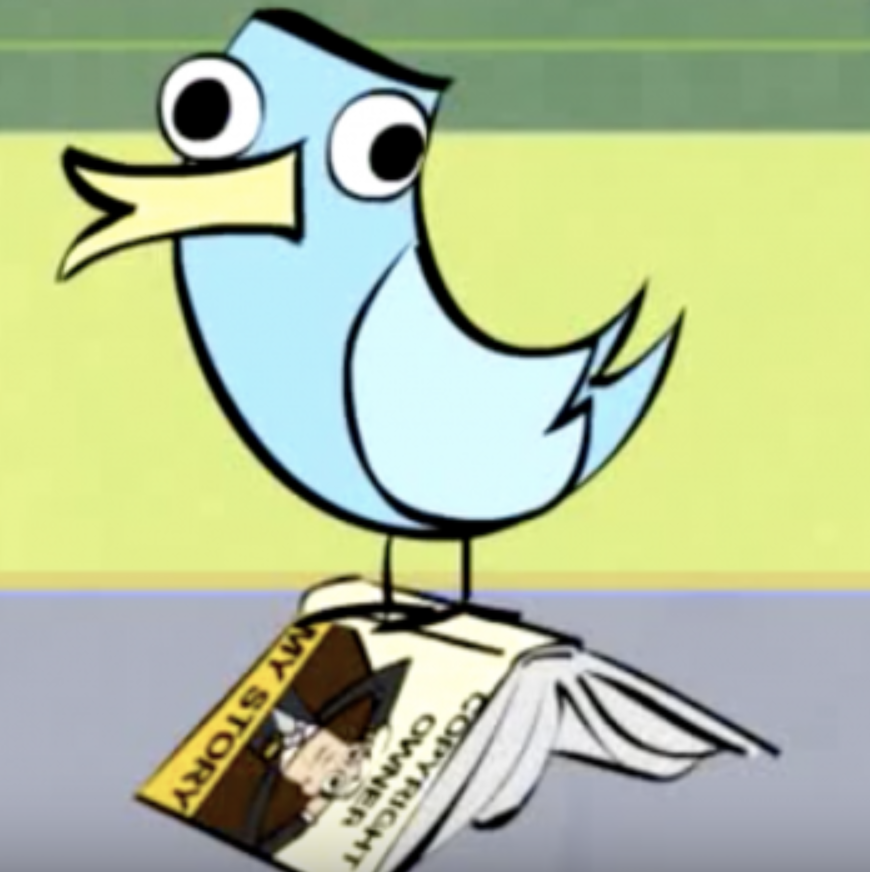A Special Ticketed Event
Renee Hobbs is delighted to offer a two-day, fully-online program for educators, school leaders, librarians, and educational technology staff on March 30 - 31, 2023.
 copyright and fair use for digital learning
copyright and fair use for digital learning
By taking this course, you will enhance your confidence about how the law affects teaching and learning in a digital age. The videos, readings, lesson plans, activities and resources you will encounter will give you the tools to start rich conversations about the topic of copyright and fair use. This dynamic online program will help educators, librarians, and technology specialists understand the legal and ethical uses of copyrighted material for teaching and learning that are protected under the doctrine of fair use.
DATES: Thursday, March 30 and Friday, March 31, 2023
TIME: 12 - 3 PM EST
LOCATION: ONLINE. Click here to register. Program fee: $149.
In this course, you will:
- learn about the most common myths and misinformation related to copyright and fair use
- learn how copyright law protects both the rights of authors and audiences
- identify the intellectual property rights and responsibilities of learners and teachers
- distinguish between plagiarism and copyright violation
- understand intellectual property concepts in relationship to civic education and digital citizenship
- develop confidence in making a fair use determination by conducting a situational analysis
- determine when you need to ask permission, buy a license, claim fair use, or use alternative licensing schemes like Creative Commons
- appreciate the concept of transformativeness in relation to a variety of remix practices in and out of school
- understand why fair use is essential for digital and media literacy education
- recognize the role of school librarians, technology leaders, and others in copyright eduction
- value the need for advocacy in copyright education and understand actions taken to ensure the law meets its intended goals
- appreciate how copyright law changes in response to technology and society
- consider how covid-19 affected the interpretation of copyright law
- discuss the latest developments in copyright law and policy that affect teachers, learners, and schools
What You Can Expect
Renee Hobbs is the author of Copyright Clarity: How Fair Use Supports Digital Learning and the editor of the Routledge Companion to Media Education, Copyright, and Fair Use. As a highly regarded presenter who has offered copyright education on all four continents, Professor Hobbs models best practices of online learning, which will include a variety of different types of learning experiences, including discussion, lecture, activity, simulation, and even create-to-learn pedagogies. She will tap into what you already know and think about copyright, fair use and digital learning. You have experiences that others can learn from! You'll do some reading and viewing activities to gain access to new knowledge. A short quiz will help solidify your learning of key ideas. To strengthen analysis and evaluation skills, you will engage in discussion that produces divergent thinking and critical analysis. Some lessons invite you to write an interpretation, share your opinion, or create something new that allows you to reflect upon or demonstrate what you have learned. Because we emphasize digital media production activities as a form of learning, you will also have the opportunity to use digital media tools and resources, available free online. These tools enable you to share what you are learning in a public way, with your own networks, using Facebook, Twitter, your own blog, or other social media. These tools help you experiment, as a learner yourself, with the practice of using copyrighted materials in transformative, legal ways.
What You Shouldn't Expect
This is not a law course. You should not expect to receive (nor will we provide) legal advice or consultation. This course and its materials and resources are designed for educators and technology professionals in the United States. Copyright laws are not global in scope. Many important topics will not be addressed in this course. It's certainly not a comprehensive overview of all aspects of copyright law in education. This course offers you information and skills that help you make better decisions about curriculum and instruction. When you have a better understanding of how copyright and fair use support digital and media literacy education, your students will benefit from advancing their own digital citizenship competencies.